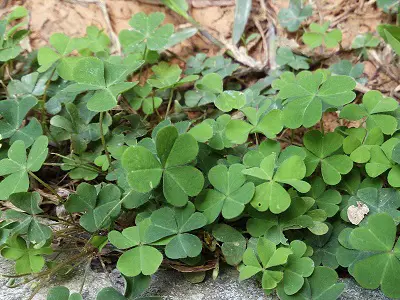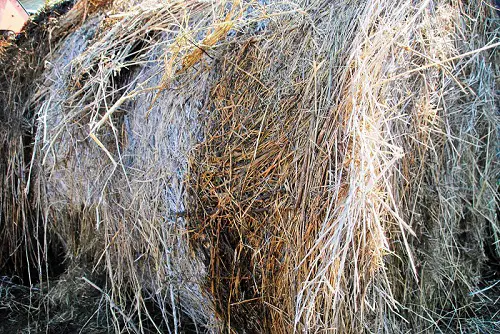As someone who rears cows you might notice certain things. You might notice that there are certain plants in abundance around. You can even notice that you cows are exposed to such plants. That can be the case with naturally occurring plants. In some cases it could be that there are actually plants or crops you grow. All these can constitute things your cows can or cannot eat. That is why you need to be wary and vigilant. Can cows eat clover? Clover is a plant of the genus Trifolium with leaves usually divided into three (rarely four) leaflets and with white or red flowers. Let us find out.
Contents
Can Cows Eat Clover?
There are some who maintain that cows should not eat clover. They say that it is poisonous. Some farmers have had cases of cows dying after ingesting lots of clover. Thus it may not necessarily be an issue of clover being poisonous. Rather it would be a case of ensuring the cows do not eat too much of it. Plus also ensuring the clover is not mouldy. Thus, yes, cows can eat clover but there are important caveats.
Clover Should Be Safe For Feeding
The clover should be ratified safe for feeding your cows. That is why it would be prudent to seek professional guidance before letting your cows eat clover. Another consideration is the clover should be fully matured. If not, even if it is okay for the cows to eat it, it becomes unsafe. Plus the clover must not have any moulds.
Clover Should Be Mould-Free
Sweet clover has what is called coumarol (or coumarin). When the clover gets in contact with moulds a chemical reaction takes place. The coumarol turns into dicoumarol. When the cows eat the mouldy clover, that dicoumarol compromises the production of vitamin K. Vitamin K is an integral part of blood clotting. That is why fatal internal bleeding in cows results just from ingesting mouldy clover. The dangers are worse for calves.
Health Benefits Of Clover To Cows
Clover has high protein and mineral content. Clover is also rich in fiber. These are nutrients that are pertinent to a cow’s health. Sweet clover in particular has been found to contribute to weight gain for young cows. One research conducted in North Dakota found that young cows gained an average of more than 1 kilogram daily. All thanks to eating sweet clover. It has also been demonstrated that clover can enhance milk production in dairy cows.
Moderation Is Critically Important
Cows must not eat too much clover. Liver damage can result if cows eat too much clover. Metabolic and digestive complications can also occur. Digestion-wise, bloating is a common problem. Of notable mention is sweet clover; cows should eat it in moderation. Too much sweet clover can cause internal bleeding in the cows. Abortions in cows can also be caused by ingesting too much sweet clover.
Premature births or miscarriages may also occur in pregnant cows. These are all complications that can also be caused by clover poisoning when cows ingest mouldy clover. How do you know when clover is too much? The rule of thumb is that clovers should not constitute more than half of what your cows eat. If your cows mainly feed on pastures you have to be wary of this. This is because their grazing land may have more than half full of clovers.
Consideration For Proper Ways In Which Cows Can Eat Clover
Mixed And Rotational Feeding Is Important
It is advised to employ mixed and rotational feeding. This means you should not exclusively feed cows with clover at any given time. Ensure they eat clover along with other foods e.g. hay. Then this should be followed by periods where they do not eat clover at all but other foods. For instance, you give the cows half a month break until their next clover intake. That way you will control their clover intake to safe levels.
Eliminate Wetness Or Moisture From The Clover
We already established that cows should not eat clover that has not yet fully matured. Closely related to that is that they should not eat clover when it is wet. This applies to when they are foraging it. It also applies to when it is in the form of hay or silage. They should eat the clover when it is dry. No wonder when the cows are foraging clover, they need to eat it later on in the day. That way the morning moisture from e.g. dew or frost would have dried off. The presence of moisture on the clover increases chances of bloating if ingested.
Does Type Of Clover Matters?
There are different types of clovers. Sweet clover is one but we have highlighted some of the things to look out for. Under normal circumstances sweet clover is good. Problems arise when the sweet clover is either damaged or mouldy. Yellow is also another type of clover that is tricky for cows. They can eat it though. White and red clovers tend to be the most popular types of clover for cows to eat. However, some do report concerns e.g. fatalities due to bloating. Another type of clover is crimson clover considered to be mildly likely to cause bloating. Thus you need not rely exclusively on mentions of a particular clover being the best. Whatever type of clover it is, exercise moderation and make sure moulds are not there.
Final Words
Cows can benefit from eating clover provided certain things are kept in check. That is why some can say clover is safe for cows to eat. Yet some can say clover is poisonous for cows to eat. It all boils down to one’s management practices when clover is involved. Eliminate moisture, feed in moderation, and ensure there are no moulds. These cardinal aspects if kept in check can guarantee maximum returns from cows from eating clover. In the event that bloating occurs, immediately contact your nearest veterinary expert.

